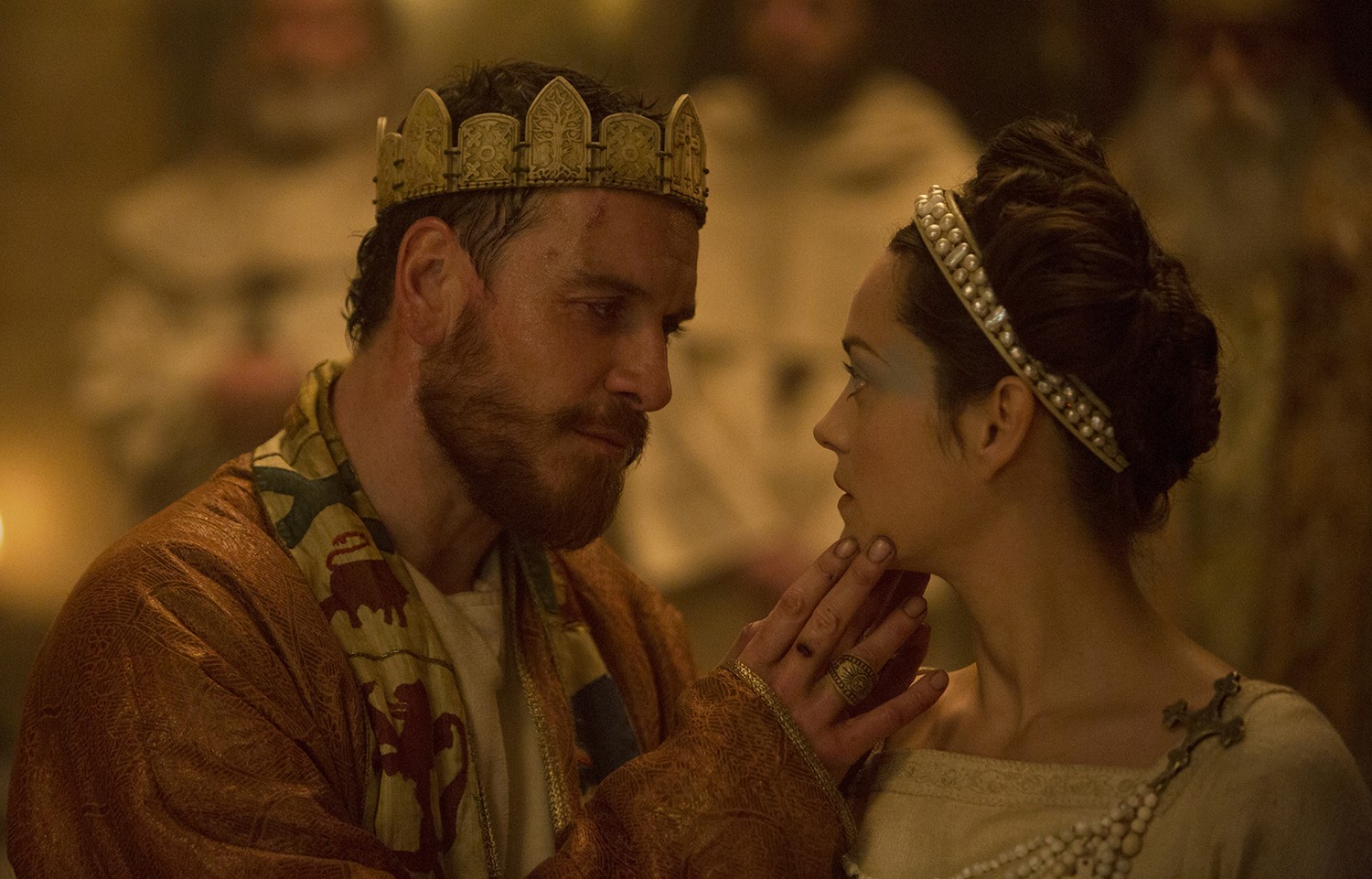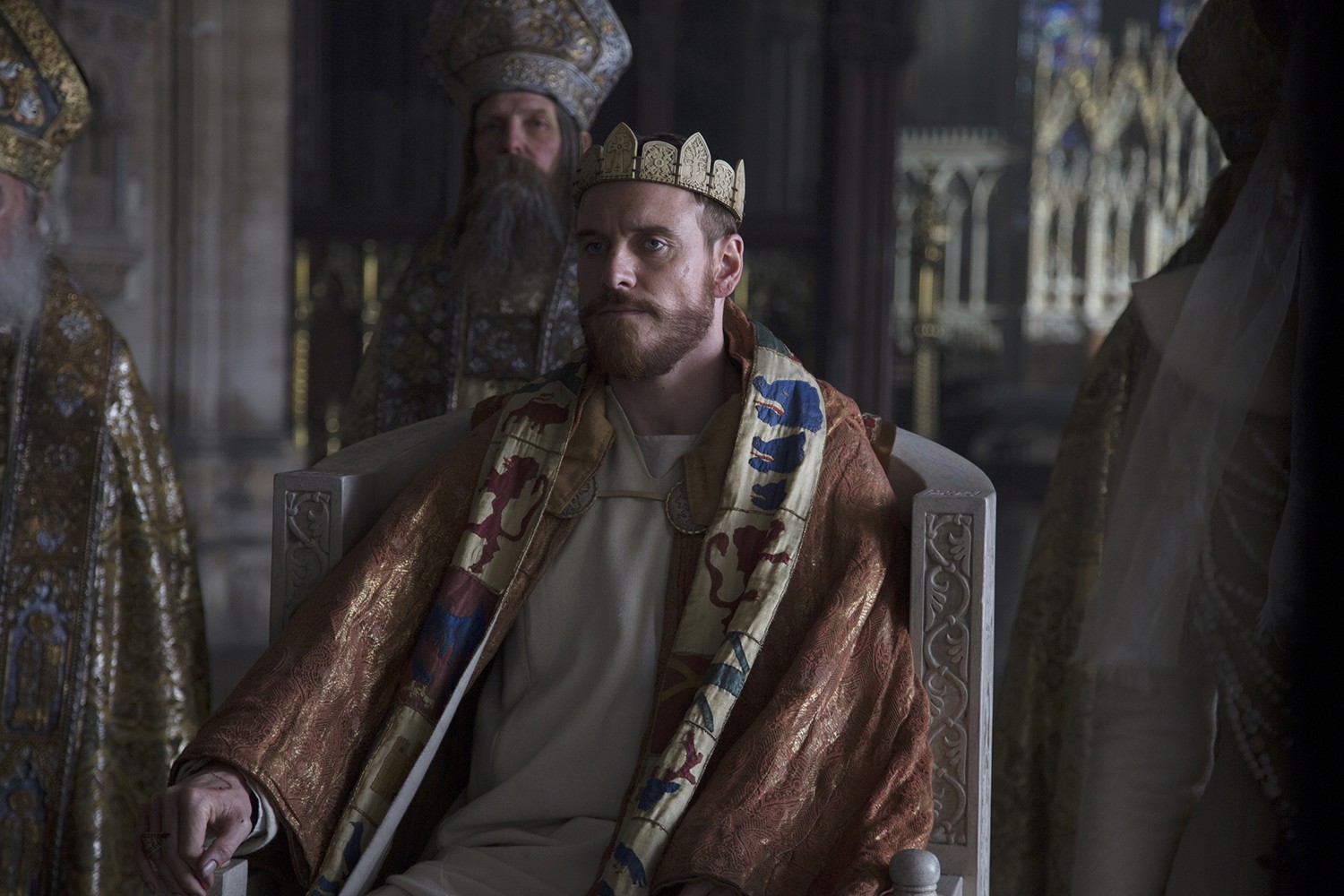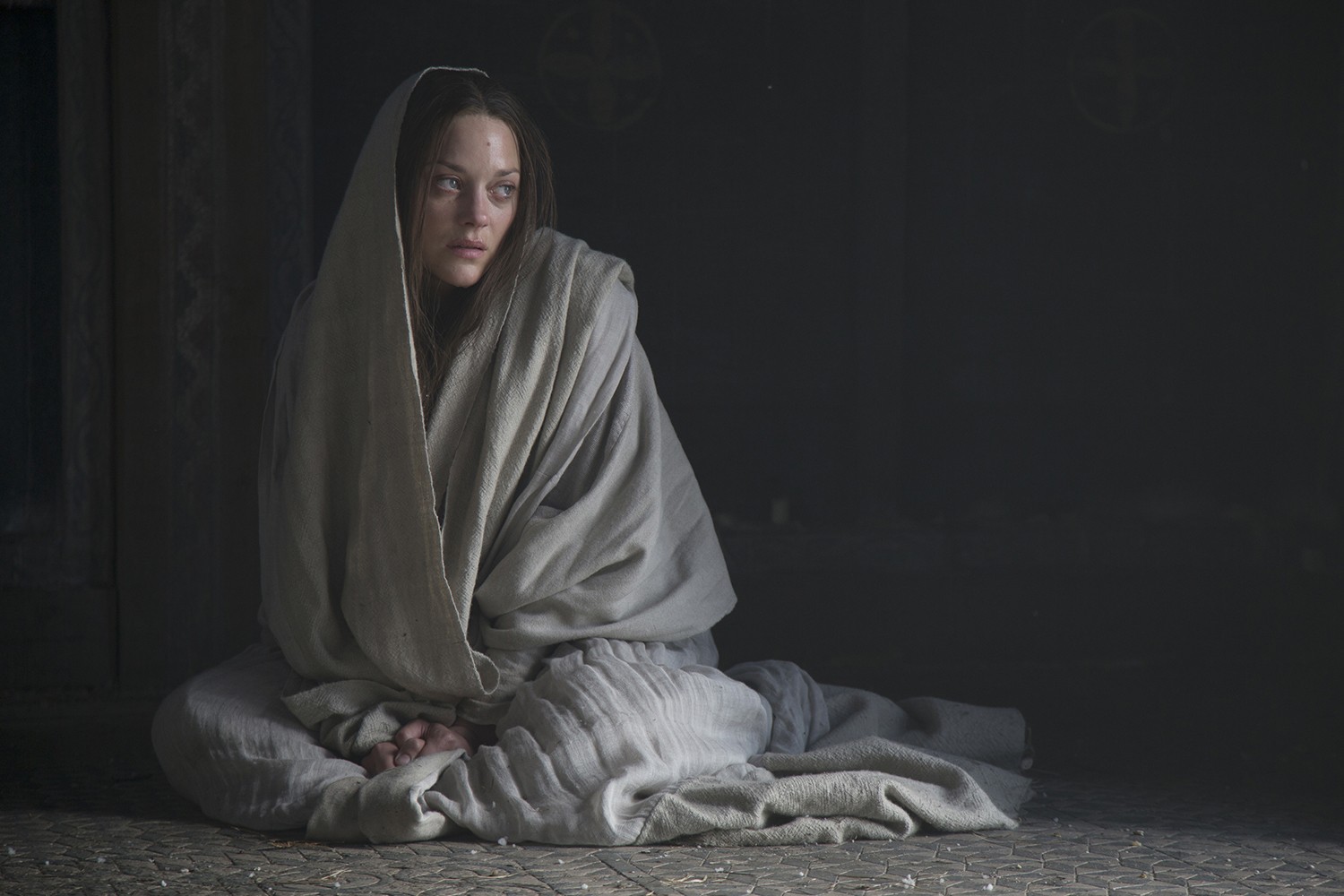
Justin Kurzel's is a Macbeth stripped of lit-class ponderousness, stage-bound declaiming, Ren Fest cosplay, and prestige-film pomposity. It is the essence of this cruelest of plays, the blade unsheathed—and, as a blade would be after hacking through all these Scottish wars, its edge is blunt, rough, a thing to gut with rather than slice smoothly. This is a Macbeth to sink into and shrink from, not one to parse.
There's poetry among the witchery and warfare, and not just in the speeches. (Unlike the swords, the words remain whetted.)
It's in Kurzel's mist-choked Highlands, the piss-yellow skies, the way the moon burns through a scrim of cloud, the waft and drift of snow and ash and ember. It's in the way Kurzel's witches, the traditional trio plus a knee-high trainee, stand atop their world's spine, swathed in their black robes but also in the fogging breath of the day or the night or the netherplace in between in which this story broods and bleeds. It's in the brutal clanging intimacy of the battles, those clashes in which only mud and blood truly triumph—one of this Macbeth's bleakest visions is of an early skirmish in which teens and thanes simply turn up, before dawn, and stand around until the killing time. And it's always there in the fire, which is life and death at once in a world so pressed in by darkness that the snuffing of a candle truly is the snuffing of all light.
But left unchecked, that fire, like Macbeth's ambition, consumes all. This isn't a film of soliloquies, it's one of conflagrations, from the torches to the stake-burnings to the end-of-all-things finale, when it's not enough that Birnam Wood marches on Macbeth's cheerless seaside hold—here comes the heat-lamp sky of hell itself. (The film is extravagantly color-filtered; the violence, while un-shy about blood, is just a hair more brutal than what you might see in a Hobbit or the NFL.)

So this Macbeth will enjoy a long post-theatrical afterlife of not being much help for high school students. (If they want their Scottish play bloody and mad they should try Polanski's film; if they want the test-prep and the full heart and horror of the thing, they should try Trevor Nunn's 1978 Royal Shakespeare production, with Ian McKellen and Judi Dench, available in full on YouTube.) Here, Marion Cotillard, as the brains behind the grisly business of thane-promotion, finds all the grim power in the lines about ripping a baby from her nipple and dashing its brains out, but Michael Fassbender, so tigerish yet haunted throughout, takes a knee on the climactic tomorrow/tomorrow/tomorrow speech. It's as if he and Kurzel have decided that it's enough just to get this most despairing of all verse spoken out loud. Fassbender's Macbeth, undone by news of a death that wasn't his doing, delivers the famous lines as if they're something he long ago committed to memory, like you might have done in college, and as though precisely recalling and enunciating them is all that is keeping him sane. He could be running through a multiplication table.
Macbeth's best-known line almost breaks the spell. When Fassbender speaks of life as some poor player strutting/fretting upon the stage, I was pulled for a breath from the film's deliciously suffocating mud-pit: When might any of Kurzel's murderin' Scots have found time for anything so un-elemental as theatergoing? I've never seen filmed Shakespeare so entirely removed from the playhouse—or given such full, fresh life. Even Michael Almereyda's biker-gang Cymbeline comes down to actors, on a set, trying to sound natural as they recite. There's little of that here—nobody seems cowed or excited to be swimming in the very headwaters of our English. Kurzel's film, and all its gloomy tableaux, is a troubled dream arising from the text—not just another setting for it.

The verse is mostly spoken in whiskery whisper, sometimes in drifty Malickian voiceover, over the slabbed droning of Jed Kurzel's tense score. (He's the director's brother.) The witches murmur; Macduff (Sean Harris) growls out the news of his unconventional womb-ripping as if it's something he'd prefer to keep quiet; Macbeth and his Lady get each other off as they plot, their hands busy under their shifts, but they still keep it quiet. At almost all moments, as they consult and consort, we see a candle lit in the shadows beneath them. We might not catch all the words, but there's no mistaking what that light means—or that the darkness will overwhelm it.
Macbeth was directed by Jason Kurzel; written by Todd Louiso, Jacob Koskoff, and Michael Lesslie, adapted from the play by William Shakespeare; and stars Michael Fassbender, Marion Cotillard, Paddy Considine, Sean Harris, Jack Reynor, Elizabeth Debicki, David Thewlis and David Hayman.

